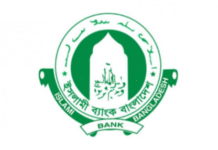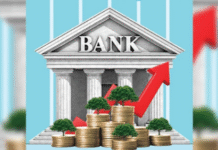
The interest on three month term deposits to be fixed at 6%
Owners of private commercial banks have decided to bring down the interest rate on lending to 9% and that on deposits to 6% from the existing levels.
The new interest rates will come into effect from July, the first day of fiscal year 2018-19.
Currently, private banks are lending at between 14 and 15%. The average interest rate for deposits is between 9 and 10%.
The decision was taken by the Bangladesh Association of Banks (BAB) at an emergency meeting on Wednesday at its office in the capital, with BAB Chairman Nazrul Islam Mazumder heading up the meeting, said a press release.
BAB took the decision under direction of Prime Minister Sheikh Hasina in order to create an industry-friendly environment, create new entrepreneurs, generate employment, and to accelerate trade, the release added.
Nazrul Islam Mazumder said: “Interest rate for the three-month term deposit from July 1 will be 6%, and the lending interest rate will be 9%. No bank will charge an interest higher than this. Banks will have to accept this decision.”
The BAB leaders also had a meeting with the prime minister later in the day.
“After taking the decision, we met Prime Minister Sheikh Hasina and informed her about it. There is no scope for apprehension about its implementation. The bank owners took this decision for the country’s development,” Nazrul said.
Boosting investment
According to the Bangladesh Bureau of Statistics, the contribution of investment to GDP was 30.51% in the outgoing fiscal, of which 23.10% came from private investment and 7.41% from public investment.
Finance Minister AMA Muhith told parliament during his budget speech earlier this month, that the GDP growth target for the coming fiscal will be 7.8%, while keeping inflation below 5.6%.
The proposed budget also set the target to improve the ratio of investment to GDP to 33.54% from 31.47% (provisional) in the outgoing fiscal year. Of this, 25.15% is expected to come from the private sector and 8.39% from the public sector.
In April, the government slashed the cash reserve requirement (CRR) for banks by one percentage point to 5.5% for the benefit of private commercial banks. Finance Minister AMA Muhith has also proposed that the tax rate for banks and financial institutions be reduced by 2.5% in the national budget for the 2018-19 fiscal year (FY19).
Under the present corporate tax policy, publicly listed banks, insurance, and non-bank financial institutions pay 40% corporate tax, while non-listed companies pay 42.5%.
Before this decision however, Islami Bank Bangladesh Limited (IBBL) announced on Tuesday that it would reduce the profit rate of investment from July 1 to a single digit for the sake of continuing the country’s development. Islami Bank has taken this initiative following Hasina’s recent guidance to bring down the profit rate of banks to single digits, said a press release on Tuesday.
A welcome move
“Bringing the lending rate down to a single digit is a good and timely decision for the country’s private sector investors. This will help increase investment,” Bangladesh Garment Manufacturers and Exporters Association (BGMEA) President, Siddiqur Rahman, told the Dhaka Tribune.
“This will help Bangladesh gain the investment needed for the expansion of existing businesses as well as for new enterprises. Employment generation will be boosted,” he added.
“This is an expected step, but not the only measure to boost investment. The expected outcome of the decision is that private sector investors will get loans at low rates and this will increase private sector investment,” former caretaker government advisor, AB Mirza Azizul Islam, told the Dhaka Tribune.
To attract private sector investment, the government should concentrate on other issues such as gas and electricity connections, and improving port capacity, said the economist.
He also urged bank owners not to lower the interest rate on deposits, for the sake of common people who keep money in banks as a means of safe income.
BAB Chairman Nazrul, also sponsor chairman of Exim Bank, told UNB that if any bank goes against the BAB decision, the association will take punitive action.
He said, already five private banks, including IBBL, Union Bank, First Security Islami Bank, and Al-Arafah Islami Bank have announced their decision to charge single digit interest rates on loans starting July 1.
“These banks control about 50% of the banking business,” he said.
“If they can take such a bold decision, the others can do the same,” he said.
If necessary, BAB will extend a hand to ensure implementation of the decision, he added.
The country has 57 banks, of which six are state-owned banks, while the remaining are private and foreign banks.
Source: Dhaka Tribune.









